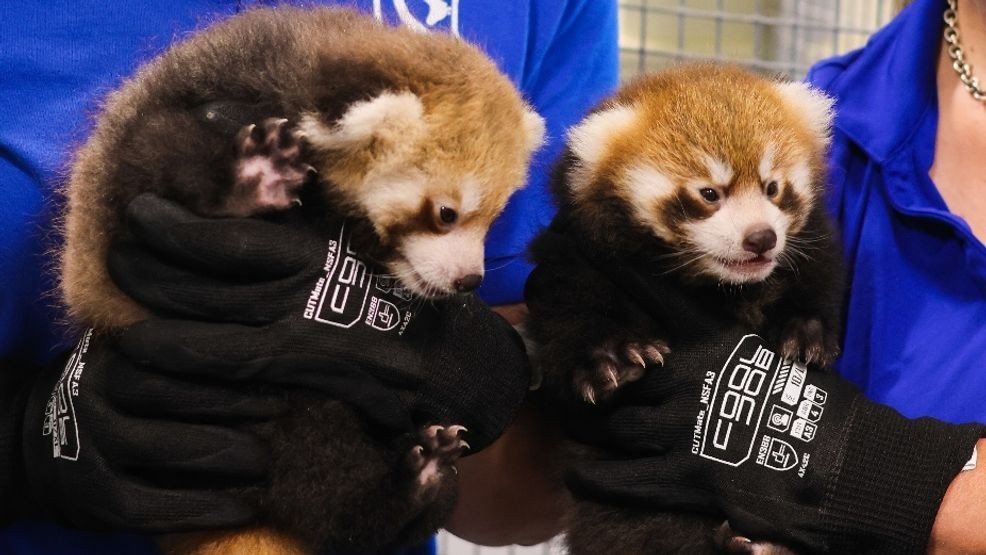PROVIDENCE, R.I. (WJAR) — Roger Williams Park Zoo’s newest additions are drawing quite the excitement.
The Providence-based Zoo welcomed red panda twins this summer, but they are not on exhibit just yet.
This is the first successful red panda birth in the history of the zoo.
Roger Williams Park Zoo Executive Director Stacey Johnson said the two-month-old twins were born on Independence Day.
“I don’t even have words for how cute they are. You can’t help but say aww as soon as you see a photo of these guys,” said Johnson.
NBC 10 saw as small crowds made their way over to the exhibit on Thursday, looking for the twins.
Johnson said they remain off-site with their mother, but the family will soon join their dad at the present Red Panda exhibit.
“We still haven’t seen them on habitat yet because mom is a first-time mom, and she’s being super cautious, but they’re growing like weeds,” said Johnson. “We know that they’re happy and healthy. We are just veterinary exams on them last week. They’ve more than doubled in size since they were born.”
Johnson said the red pandas, neither panda nor raccoon, are critically endangered species.
He said there are fewer than 10,000 remaining in the wild, so this birth is critical for conservation efforts.
“Our pandas are part of what we call the ‘Red Panda Species Survival Plan,’ which is a collaborative breeding plan among zoos. We’re breeding them and also supporting conservation,” said Johnson. “These guys won’t go back to the wild, but they’re very likely to support zoo pandas going into the future. So we can tell their story and also be engaged with conservation out in the wild.”
The birth of the twins has been five years in the making.
Johnson said the city of Providence helped the zoo readjust the red panda exhibit about two years ago, and the rest is history.
“The kind of weather we love, they don’t like as much. They like it cold and wet. So, it’s air conditioned in the main habitat, but in the wintertime they will be able to go outdoors,” said Johnson. “So, we’ve really got a much more conducive habitat to make the animals comfortable, so they’ll make more pandas.”
It will be a while before the twins make their debut in their habitat, so the zoo staff ask for everyone’s patience.
“They may have to be patient for a little while, and we will definitely let folks know when we start to see them on habitat because we’re going to be jumping up and down and clapping our hands too,” said Johnson. “So, watch our social media and watch our website. We’ll tell you.”
Visit the zoo’s website for future updates on the twins, other animals, and future events.

